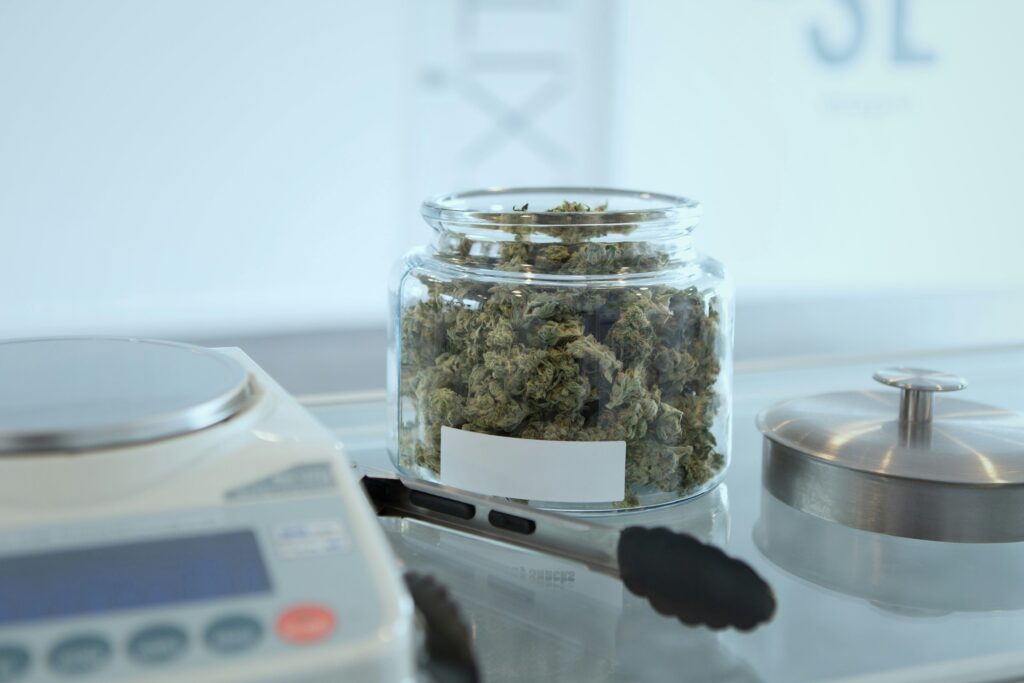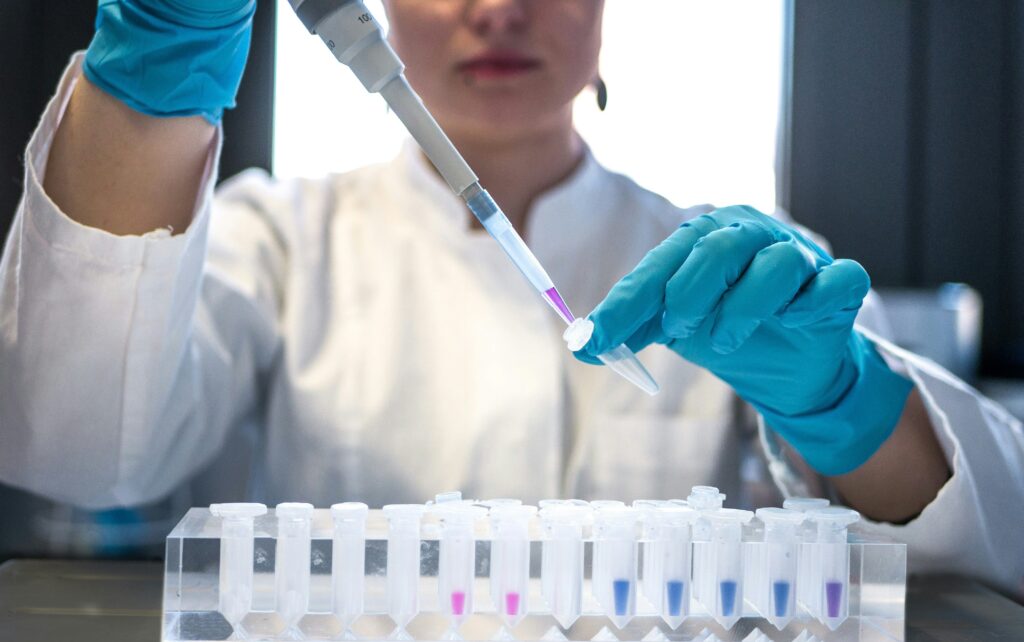Navigating the Maze: UK Law and CBD Food Supplements

In recent years, the popularity of CBD (cannabidiol) has skyrocketed, with many people turning to CBD products for their potential health and wellness benefits. However, the regulatory landscape surrounding CBD in the UK can be described as nothing less than complex and ever-evolving. As a cannabinoid testing lab, we understand the importance of clarity and compliance in the CBD industry. In this article, we’ll delve into the current state of UK law relating to CBD food supplements, including the critical aspect of compliance with the three limbs of exempt products under the Misuse of Drugs Act. CBD and the Novel Food Status One of the key factors influencing the regulation of CBD in the UK is its classification as a “novel food.” Novel foods are those that were not widely consumed in the European Union before May 15, 1997. In January 2019, the European Food Safety Authority (EFSA) declared that CBD products are indeed novel foods, subjecting them to a stringent approval process. As a result, CBD food supplements and other CBD-containing products must gain novel food authorization before they can be legally marketed and sold to consumers. This application process involves providing comprehensive safety data and scientific evidence to demonstrate the safety of CBD as an ingredient in food products. The FSA’s Approach to CBD Regulation In the UK, the Food Standards Agency (FSA) is the primary regulatory body responsible for overseeing the safety and legality of CBD food supplements. The FSA has adopted a pragmatic approach to CBD regulation while ensuring consumer safety. Here are some key points regarding the FSA’s stance on CBD: 1. Validation Period: In 2020, the FSA set a deadline for businesses to submit valid novel food applications for their CBD products. Until this validation period ended in March 2021, businesses were allowed to continue selling their existing CBD products, provided they were not marketed as medicinal. 2. Safety and Labelling: The FSA emphasizes the importance of ensuring that CBD products are safe for consumption. This includes proper labelling and clear dosing instructions. Businesses are expected to provide accurate information to consumers about CBD content and daily dose limits. 3. Enforcement: The FSA has the authority to remove CBD products from the market that do not comply with the novel food regulations or pose a risk to public health. To date, several products have been removed from sale due to non-compliance. The Three Limbs of Exempt Products In addition to the novel food regulations, CBD products in the UK must also adhere to the three limbs of exempt products outlined in the Misuse of Drugs Act. These regulations state that a CBD product cannot contain more than 1mg of combined controlled substances, such as THC (tetrahydrocannabinol), per container. This threshold is in place to prevent the misuse of controlled substances and to ensure that CBD products do not have psychoactive effects. The Road Ahead for CBD in the UK The CBD industry in the UK is still evolving, and regulatory changes are likely to continue. Businesses operating in this space should remain vigilant, stay informed about regulatory updates, and prioritize compliance with novel food regulations and the Misuse of Drugs Act to ensure the safety and legality of their products. Consumers, too, should be discerning when choosing CBD products. Look for products that are transparent about their CBD content, testing procedures, and compliance with both novel food and Misuse of Drugs Act regulations. Third-party lab testing, like the services offered by our lab, can provide assurance of product quality and cannabinoid content. Conclusion Navigating the legal landscape of CBD food supplements in the UK requires careful attention to the evolving regulations, including compliance with the three limbs of exempt products under the Misuse of Drugs Act. The classification of CBD as a novel food underscores the need for rigorous testing, safety assessment, and compliance with labelling requirements. As a cannabinoid testing lab, we are committed to providing accurate and reliable testing services to help businesses meet regulatory standards and ensure the quality and safety of CBD products. By working together with regulators, producers, and consumers, we can contribute to a transparent and responsible CBD industry that prioritizes safety and consumer well-being. In the dynamic world of CBD regulation, staying informed and adhering to the latest guidelines is essential for the continued growth and success of the industry while safeguarding public health and consumer trust.
Unlocking the Aroma of Nature: Exploring Terpenes and Their Health Benefits

The world of biotechnology continually unveils intriguing compounds and molecules, shedding light on the intricate web of life’s chemistry. One such class of compounds that has been gaining increasing attention in recent years is terpenes. Terpenes are not only fascinating for their diverse roles in the plant kingdom but also for their potential applications in various industries, including biotechnology, pharmaceuticals, and even aromatherapy. In this article, we will delve into what terpenes are, explore their wide array of natural habitats, and discuss their potential health benefits. Understanding Terpenes Terpenes are a large and diverse class of organic compounds, primarily produced by plants, fungi, and even some insects. They are responsible for the distinctive scents and flavours of many natural substances, including herbs, fruits, and flowers. Terpenes are characterized by their unique chemical structure, consisting of repeating units of a five-carbon molecule called isoprene. Depending on the number of isoprene units they contain, terpenes can vary in size, with smaller terpenes having two or three isoprene units and larger ones having more. Where Are Terpenes Found? 1. Plants: Terpenes are most commonly associated with plants. They are synthesized in specialized structures within plant cells known as glandular trichomes, which are tiny hair-like structures found on the surface of leaves, flowers, and stems. Different plant species produce a wide variety of terpenes, each with its own unique aroma and function. For example, the unmistakable scent of lavender is due to the terpene linalool, while the refreshing aroma of pine trees comes from pinene. 2. Fruits: Many fruits owe their enticing fragrances to terpenes. Citrus fruits like oranges and lemons contain limonene, giving them their characteristic citrusy smell. Similarly, the aroma of mangoes can be attributed to myrcene, a terpene also found in hops, which contributes to the flavour of beer. 3. Herbs and Spices: The world of culinary delights is rich in terpenes. Basil, for instance, contains a terpene called ocimene, contributing to its aromatic and flavourful profile. Meanwhile, the spicy kick of black pepper is partly due to the presence of the terpene beta-caryophyllene. 4. Conifers and Evergreens: The coniferous forests are abundant sources of terpenes. Trees like pines, firs, and cedars produce a variety of terpenes, such as pinene and myrcene. These compounds not only contribute to the pleasant scent of the forest but also have practical applications, like in the production of essential oils. 5. Cannabis: Perhaps one of the most discussed sources of terpenes in recent years is the cannabis plant. Terpenes play a significant role in the unique aroma and flavour profiles of different cannabis strains. For instance, the terpene limonene gives some strains a citrusy scent, while others may have a piney or earthy aroma. Health Benefits of Terpenes While terpenes are primarily known for their aromatic properties and roles in nature, they have also garnered attention for their potential health benefits. Research into the therapeutic properties of terpenes is ongoing, and although more studies are needed, here are some intriguing areas where terpenes are being explored: 1. Anti-Inflammatory Properties: Some terpenes, such as beta-caryophyllene, have shown promise as natural anti-inflammatory agents. Inflammation is at the root of many chronic diseases, and terpenes’ ability to reduce inflammation could have significant implications for conditions like arthritis and inflammatory bowel diseases. 2. Pain Management: Terpenes like myrcene and linalool may have analgesic (pain-relieving) effects. These compounds could potentially be used to develop alternative pain management therapies with fewer side effects than traditional medications. 3. Anxiety and Stress Reduction: Certain terpenes, including limonene and pinene, exhibit anxiolytic (anxiety-reducing) properties. These terpenes are found in various essential oils and are believed to have a calming effect, potentially aiding in the management of anxiety and stress. 4. Antioxidant Activity: Terpenes can act as antioxidants, helping to combat oxidative stress and reduce the risk of chronic diseases. Antioxidants are essential for maintaining overall health and preventing cellular damage caused by free radicals. 5. Neuroprotection: Terpenes like terpinolene and myrcene have demonstrated neuroprotective properties in some studies. These findings suggest that terpenes may play a role in preserving brain health and potentially reducing the risk of neurodegenerative diseases. Specific Terpenes and Their Benefits Let’s take a closer look at some specific terpenes and their potential health benefits: 1. Myrcene: Found in cannabis and hops, myrcene is known for its sedative and muscle relaxant properties. It is often associated with the “couch-lock” effect in certain cannabis strains. 2. Limonene: Abundant in citrus fruits, limonene has a refreshing and uplifting aroma. It is being studied for its potential anti-anxiety and mood-enhancing effects. 3. Pinene: As the name suggests, pinene is prevalent in pine trees. It is believed to have bronchodilator properties and may aid in respiratory health. Some studies also suggest it could enhance alertness and memory. 4. Linalool: Present in lavender and several other floral and spice plants, linalool is known for its calming and soothing properties. It is often used in aromatherapy for relaxation and stress relief. 5. Ocimene: This terpene is found in various plants, including mint, basil, and orchids. It has a sweet, herbaceous aroma and is currently being investigated for its potential anti-inflammatory properties. One of the most intriguing aspects of terpenes is their interaction with other compounds, particularly within the cannabis plant. This phenomenon is known as the “entourage effect.” The entourage effect suggests that the combination of various compounds, including cannabinoids like THC and CBD along with terpenes, can have a more significant therapeutic impact than each compound individually. In other words, terpenes may enhance or modulate the effects of cannabinoids, potentially influencing the overall therapeutic potential of cannabis-based products. Terpenes are remarkable compounds found in nature with a wide range of potential benefits, both for our senses and our health. As research continues to uncover their diverse roles and therapeutic potential, the world of biotechnology and pharmaceuticals holds exciting possibilities for harnessing the power of terpenes to improve human well-being. Whether you’re savouring the aroma of a freshly cut lemon, enjoying the calming effects of lavender
The Weighty Issue: Why Testing CBD Oils and Cannabis Products for Heavy Metals Matters

The popularity of CBD oils and other cannabis products has surged in recent years, driven by the potential health benefits they offer. However, behind the scenes of this booming industry, there’s a crucial aspect that often goes overlooked: testing for heavy metals. Heavy metals are naturally occurring elements present in soil, and they can find their way into cannabis plants during growth. In this blog post, we’ll explore why testing CBD oils and cannabis products for heavy metals is of paramount importance for both consumers and the industry as a whole. The Silent Threat of Heavy Metals Heavy metals such as lead, cadmium, mercury, and arsenic are notorious for their toxicity. When present in cannabis products, they can pose serious health risks to consumers. These heavy metals can accumulate in the human body over time, leading to a range of health issues, including: 1. Neurological Problems: Lead exposure, even at low levels, can lead to cognitive impairment, especially in children. This can result in learning disabilities and behavioural issues. 2. Cancer: Cadmium is a known carcinogen, and chronic exposure has been linked to lung, prostate, and kidney cancer. 3. Kidney and Liver Damage: Mercury and cadmium can accumulate in the kidneys and liver, causing damage to these vital organs over time. 4. Gastrointestinal Issues: Arsenic exposure can result in gastrointestinal problems, including nausea, vomiting, and abdominal pain. 5. Cardiovascular Problems: Heavy metals have been associated with heart diseases, including hypertension and atherosclerosis. The Regulatory Perspective To protect consumers from the potential health hazards of heavy metal exposure, many countries have established regulations and safety standards for cannabis products. In the United States, for example, the state of California mandates stringent testing for heavy metals in cannabis and cannabis-derived products, including CBD oils. Similar regulations exist in other regions as well. Testing for Heavy Metals: Ensuring Safety and Compliance 1. Safety: Testing for heavy metals is a fundamental step in ensuring the safety of CBD oils and cannabis products. By identifying and quantifying the presence of heavy metals, manufacturers can take necessary steps to remove contaminated batches from circulation. 2. Compliance: Compliance with local and national regulations is crucial for businesses in the cannabis industry. Failing to adhere to testing requirements can result in legal consequences, damage to reputation, and potential harm to consumers. 3. Consumer Trust: Transparent testing practices build trust with consumers. When customers see that a product has been rigorously tested for heavy metals and meets safety standards, they are more likely to trust the brand and make informed purchasing decisions. 4. Quality Assurance: Ensuring the absence of heavy metals in cannabis products is also an indicator of overall product quality. Quality assurance is essential for maintaining the integrity of the industry and providing consumers with reliable products. Heavy metals are a greater concern in cannabis products due to the unique nature of the plant’s growth and cultivation. Cannabis is known for its ability to absorb elements from its environment, including potentially harmful heavy metals present in soil or water. Unlike many other crops, cannabis plants are often grown in diverse locations, which may have varying levels of heavy metal contamination. Consequently, there is a higher risk of heavy metals being absorbed by the plant and subsequently concentrated in the final products, such as CBD oils or edibles. Given the potential health risks associated with heavy metal exposure, including neurological, gastrointestinal, and even carcinogenic effects, rigorous testing and regulation of heavy metal content in cannabis products are imperative to protect consumer safety and well-being. Testing CBD oils and cannabis products for heavy metals is not just a regulatory requirement; it’s a crucial step in ensuring the safety and well-being of consumers. By conducting rigorous testing, manufacturers can identify and eliminate contaminated batches, adhere to regulations, build trust with consumers, and maintain the integrity of the industry. As consumers, it’s essential to choose products from brands that prioritize safety and quality by conducting thorough testing for heavy metals. Together, responsible testing practices and informed consumer choices can help ensure that CBD oils and cannabis products continue to offer potential health benefits without the threat of heavy metal contamination. Contact us today to embark on a journey of precision and reliability with PhytoVista. Call Us +44 (0) 20 4526 5675 Email Us info@phytovistalabs.com